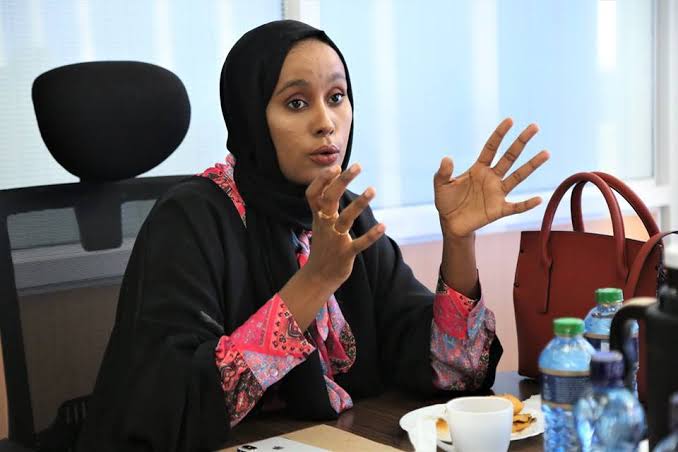Politics
MCAs Turn Heat on Sakaja Over Finance Chief as Corruption Allegations Mount
MCAs who once defended the finance chief are now distancing themselves as evidence of financial impropriety continues to surface.

A growing chorus of Nairobi County Assembly members is intensifying pressure on Governor Johnson Sakaja to dismiss Chief Finance Officer Asha Abdi amid escalating corruption allegations that have rocked City Hall’s financial operations.
The renewed calls for Abdi’s removal come as multiple sources reveal a sophisticated network allegedly siphoning hundreds of millions from county coffers through phantom projects and questionable payments.
MCAs who once defended the finance chief are now distancing themselves as evidence of financial impropriety continues to surface.
The turning point appears to be mounting evidence of irregular payments to suspect companies, with investigations revealing that firms like Emari Ventures received over 230 million shillings since October 2024, much of it for projects whose completion remains questionable.
Other entities, including Zonari Investment and Centreline Logistics, allegedly pocketed tens of millions for work that was never completed.
“Some of them are our young voters whose businesses have closed when at the same time they have young families depending on them, yet here is an officer who has decided to dine with the mighty and only cut deals with them,” said one MCA who requested anonymity, highlighting the frustration among elected representatives facing pressure from unpaid local suppliers.
The allegations against Abdi, often referred to as Sakaja’s “sacred girl” or “wonder girl,” extend beyond financial mismanagement to claims of ethnic favoritism and the use of interns as proxies to manipulate county systems.
Staff members report that genuine suppliers owed as little as 400,000 shillings remain unpaid while questionable payments flow to well-connected companies.
Deputy Governor James Muchiri has reportedly expressed unhappiness with the rising cases of unpaid dues to legitimate suppliers who frequently visit his office seeking assistance. This internal discord adds another layer of complexity to the political dynamics at City Hall.
The controversy has also exposed a pattern where county officials allegedly clear coffers at each financial year’s end under the guise of settling “development budget pending bills,” raising questions about transparency in financial management.
Interestingly, the same assembly that once praised Abdi’s role in developing the Nairobi City County Finance Act 2023 and enhancing revenue collection is now calling for her head.
During a recent meeting with President William Ruto, the entire assembly had initially demanded her removal alongside other senior officials including Chief of Staff David Njoroge.
However, the political calculation around Abdi’s fate is complicated by broader power dynamics.
President Ruto and ODM leader Raila Odinga’s recent intervention to save Sakaja from impeachment demonstrates the high stakes involved in Nairobi’s political landscape ahead of the 2027 elections.
For MCAs caught between defending their governor and responding to constituent pressure over unpaid suppliers, Abdi has become a convenient target.
Her removal could provide political cover for Sakaja while allowing the broader administration to remain intact.
The finance chief’s previous experience includes serving as County Executive Committee member for Finance in Isiolo County and later in Mombasa, but her tenure in Nairobi has been marked by persistent allegations of corruption and financial mismanagement.
As investigations by the Directorate of Criminal Investigations and the Ethics and Anti-Corruption Commission continue, the pressure on Sakaja to act decisively grows.
Whether he will sacrifice his trusted finance chief to appease the assembly and preserve his own political standing remains to be seen.
The outcome of this standoff will likely signal how the governor intends to navigate the treacherous political waters of Nairobi County as he positions himself for the next election cycle.
Kenya Insights allows guest blogging, if you want to be published on Kenya’s most authoritative and accurate blog, have an expose, news TIPS, story angles, human interest stories, drop us an email on [email protected] or via Telegram
-

 News2 weeks ago
News2 weeks agoTHE FIRM IN THE DOCK: How Kaplan and Stratton Became the Most Scrutinised Law Firm in Kenya
-

 Economy2 weeks ago
Economy2 weeks agoIran Demands Arrest, Prosecution Of Kenya’s Cup of Joe Director Director Over Sh2.6 Billion Tea Fraud
-

 Grapevine1 week ago
Grapevine1 week agoA UN Director Based in Nairobi Was Deep in an Intimate Friendship With Epstein — He Even Sent Her a Sex Toy
-

 Business2 weeks ago
Business2 weeks agoKPC IPO Set To Flop Ahead Of Deadline, Here’s The Experts’ Take
-

 Politics2 weeks ago
Politics2 weeks agoPresident Ruto and Uhuru Reportedly Gets In A Heated Argument In A Closed-Door Meeting With Ethiopian PM Abiy Ahmed
-

 Investigations1 week ago
Investigations1 week agoHow Mexico Drug Lord’s Girlfriend Gave Him Away
-

 Business2 weeks ago
Business2 weeks agoSafaricom Faces Avalanche of Lawsuits Over Data Privacy as Acquitted Student Demands Sh200mn Compensation in 48 Hours
-

 Investigations2 weeks ago
Investigations2 weeks agoKenya’s DCI Opens Probe on Russian Man Who Secretly Filmed Sex Escapades With Women — But There’s a Slim Chance They’ll Ever Get Him



















